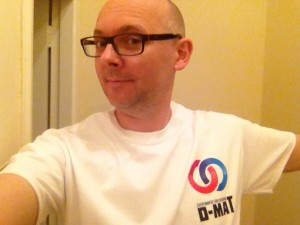On Beauty
I have a confession to make. Newspapers and popular magazines full of ads? I don’t read them. TV channels with ads? I don’t watch them. Not because I’m getting all my media online–I’ll skip ads there too, if I can. And not because I’m angry about being sold stuff–I like targeted ads if they’re for things I actually want. It’s not even because they interrupt the flow of desirable information into my brain. It’s because they put undesirable information into my brain, information that generally makes my life just a little bit more sucky.
What I’m talking about is ads containing people who are amazingly, supernaturally good-looking.
Now, I’ve got nothing against beautiful people. Some of my best friends are beautiful people. I’m not a beautiful person, but that’s okay. I can live with it–as long as someone isn’t shoving the message down my throat that if I’m not beautiful, if I’m just average old me, I don’t deserve to be happy, successful, loved, whatever. And that’s what the ads are telling us.
More or less. There are good ads and bad ads. The bad ads seem to outnumber the good ads, though, so I avoid them all. I’ll even avoid watching shows that contain too many beautiful people (Tomorrow People, I’m looking at you) because along with the negative message they put out, it’s hard to take them seriously at all. No one’s world is so full of beauty. Not even Hollywood, where are there are all sorts of average studio execs, agents, stylists, etc to counterbalance the saccharine shine of the stars. The real world is ugly and interesting. Beauty stands out because it’s rare, not because it’s better.
Where am I going with this? Well, my book Twinmaker comes from the same part of me that gets angry when bad ads are on. My main character, Clair, hates her nose. (That’s not so weird; I hate my nose too.) Clair’s best friend Libby has a birthmark on her cheek that she hates with a blinding white-hot passion. Maybe that makes slightly more sense, but not in any real way. Everyone around Libby regards her as one of the beautiful people. She’s the only one who doesn’t see herself that way. When Libby senses that her boyfriend and Clair are developing an attraction to each other, she tries to solve it by making herself even more beautiful by getting rid of the one thing that makes her her–because in her mind beauty is fundamentally linked to desirability. If Zep no longer loves her the way he used to, that means her birthmark must be making her ugly.
Which is a shame, you know? There’s a lot more to liking someone than how they look. That doesn’t stop us feeling anxious about the way we look, though–and it’s not an anxiety that’s not confined to girls. Boys worry about being pretty just like girls worry about being handsome. (Did I get that around the wrong way? Same thing.) It’s normal, up to a point. But when ads push that point out to unreasonable lengths, so it’s impossible for anyone normal (i.e. pretty much everyone) to ever be that beautiful, it makes us all disappointed and frustrated, when really, we’re all perfectly great and we should all be happy with the way we look in order to concentrate on being better people on the inside, because that’s what counts. The whole “skin deep” thing applies.
But in Clair’s world skin is changeable. There’s a meme called Improvement that promises to make you better in any way you desire. Want to be bigger, skinnier, smarter, stronger? Whatever you want, you can change it by just doing a couple of simple things. It’s not supposed to be possible, and if it does work, it’s completely illegal. But that doesn’t stop people being tempted. Libby is one of those.
It wouldn’t be a novel if terrible things didn’t happen to someone, but I swear I’m not bashing the beautiful or out to make anyone feel bad. Twinmaker simply raises the question: Are you happy with the way you look? And: How far would you go to make yourself better? If you’re happy, great! Just stop watching those ads. If we all did, I think the world be a much happier place.
(First appeared in Fiction Fascination in 2013)

